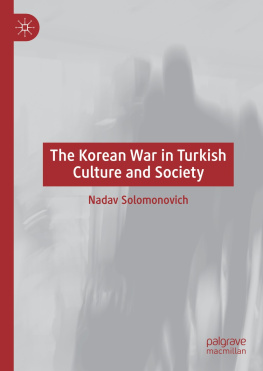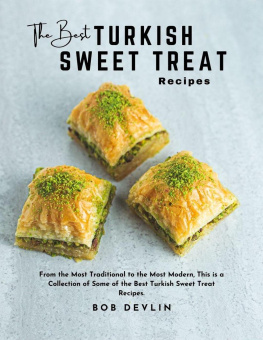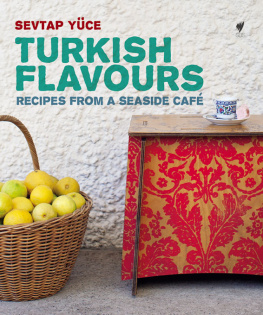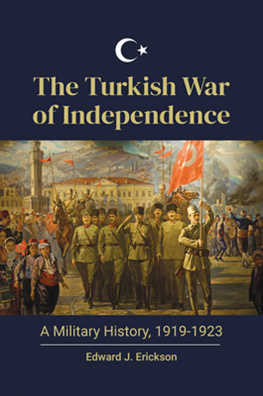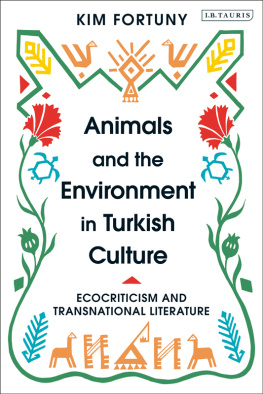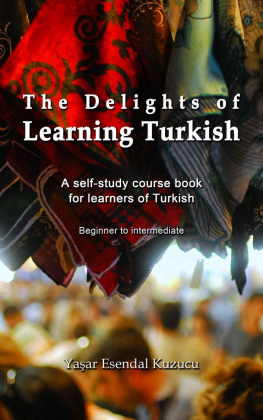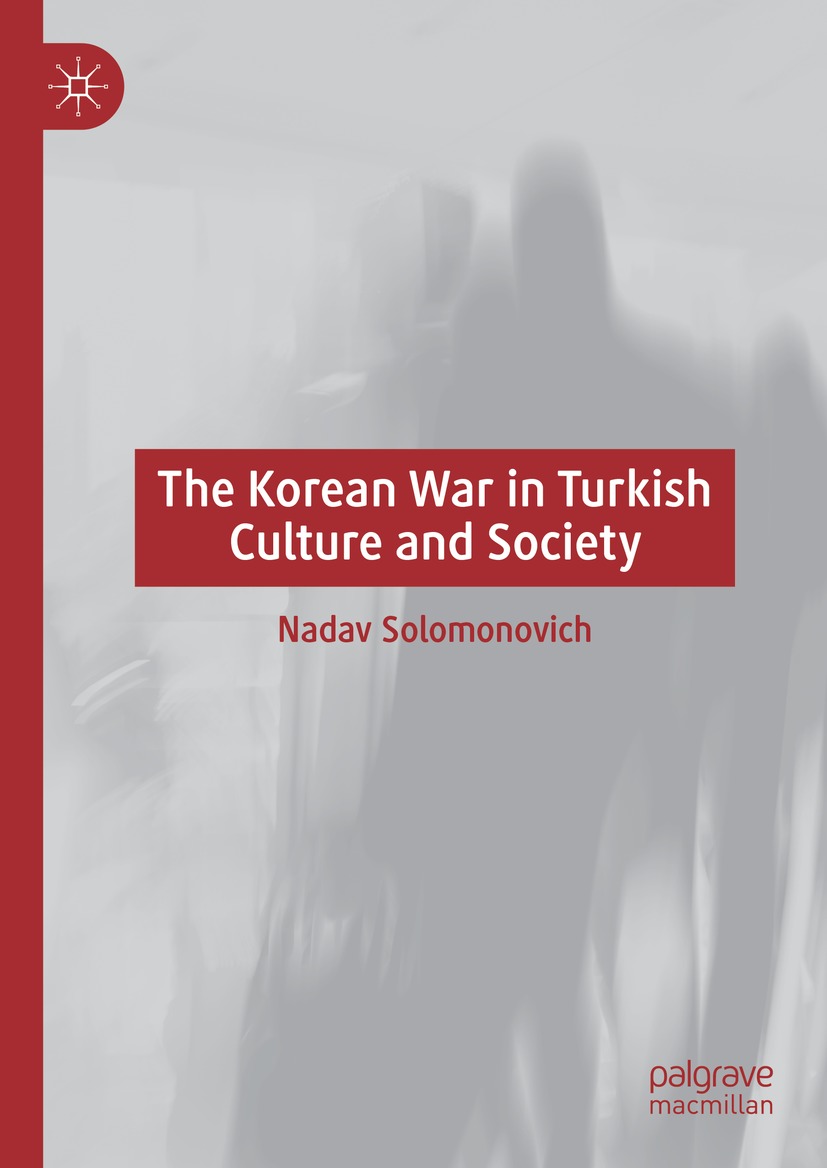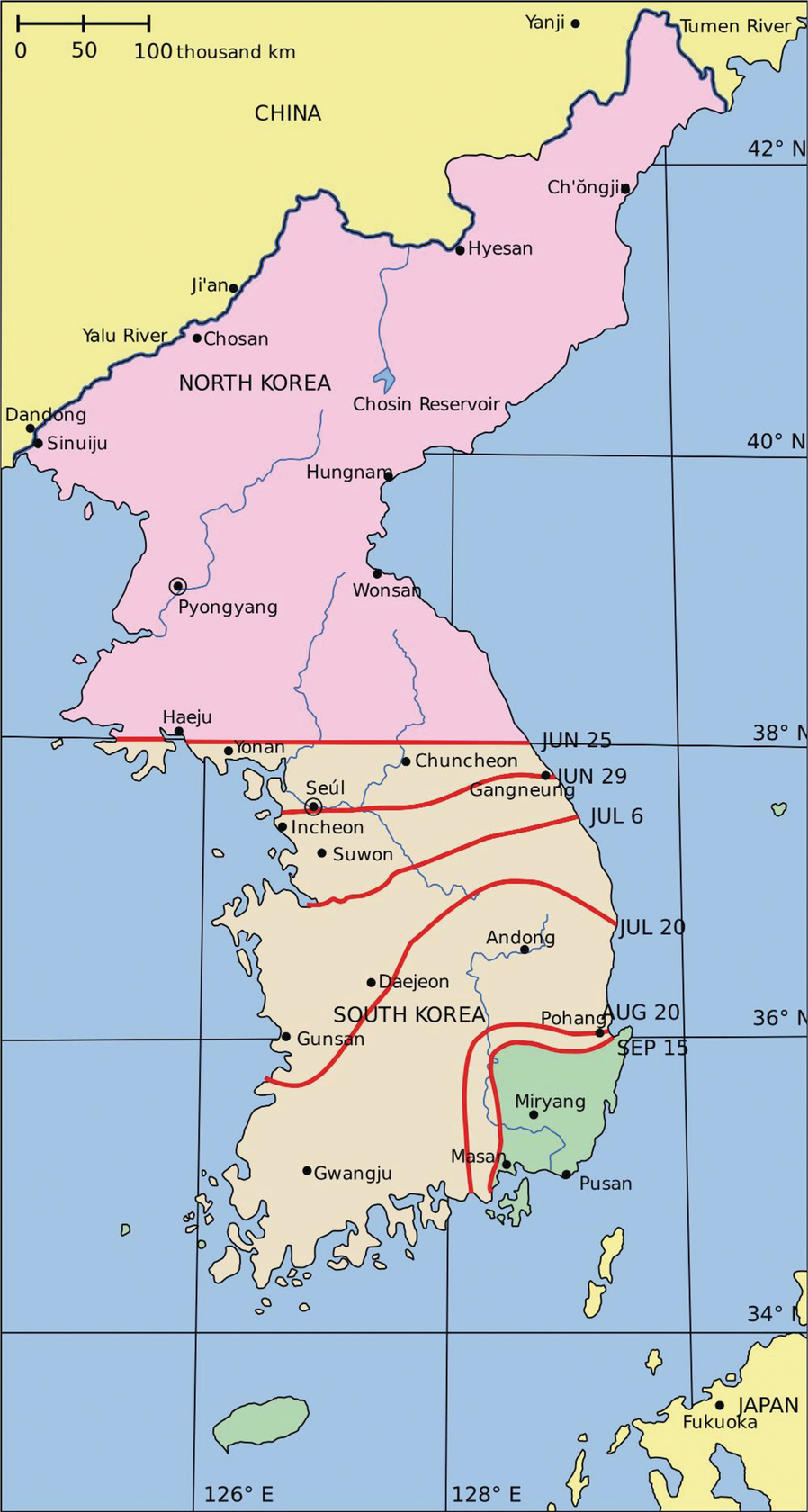Nadav Solomonovich
The Korean War in Turkish Culture and Society
1st ed. 2021

Logo of the publisher
Nadav Solomonovich
University of Haifa, Haifa, Israel
ISBN 978-3-030-84035-8 e-ISBN 978-3-030-84036-5
https://doi.org/10.1007/978-3-030-84036-5
The Editor(s) (if applicable) and The Author(s), under exclusive license to Springer Nature Switzerland AG 2021
This work is subject to copyright. All rights are solely and exclusively licensed by the Publisher, whether the whole or part of the material is concerned, specifically the rights of translation, reprinting, reuse of illustrations, recitation, broadcasting, reproduction on microfilms or in any other physical way, and transmission or information storage and retrieval, electronic adaptation, computer software, or by similar or dissimilar methodology now known or hereafter developed.
The use of general descriptive names, registered names, trademarks, service marks, etc. in this publication does not imply, even in the absence of a specific statement, that such names are exempt from the relevant protective laws and regulations and therefore free for general use.
The publisher, the authors and the editors are safe to assume that the advice and information in this book are believed to be true and accurate at the date of publication. Neither the publisher nor the authors or the editors give a warranty, expressed or implied, with respect to the material contained herein or for any errors or omissions that may have been made. The publisher remains neutral with regard to jurisdictional claims in published maps and institutional affiliations.
This Palgrave Macmillan imprint is published by the registered company Springer Nature Switzerland AG
The registered company address is: Gewerbestrasse 11, 6330 Cham, Switzerland
To my Parents, Avi and Maty Solomonovich
Acknowledgments
This book began its life at the Hebrew University of Jerusalem. I would like to begin by expressing my deep gratitude to my advisors Eyal Ginio and Umut Uzer, whose sharp questions and attentive comments, as well as patience and support, helped me (or so I hope) improve this book and become a better researcher.
I would also like to thank the Leonard Davis Institute of International Relations at the Hebrew University of Jerusalem for its support which allowed me to focus on this research in its preliminary stage as a dissertation. I owe a debt of gratitude to the Swiss Government Excellence Scholarship program, whose grant made possible my postdoctoral fellowship at the University of Basel in Switzerland, and to Maurus Reinkowski, who served as my host and whose comments on the manuscript contributed to the quality of this book.
While working on this book I discussed my ideas with colleagues and friends at the Hebrew University of Jerusalem, University of Haifa, and the University of Basel, and they all contributed to this work. I wish to thank Ruth Kark, Yuval Ben-Bassat, Liat Kozma, Fruma Zachs, Meir Hatina, and Leigh Chipman for their support and encouragement, as well as the members of my doctoral committee, Oren Barak, Alon Levkowitz, and Anat Lapidot-Firilla, for our lively and beneficial discussions. Thanks to my friends Eyal Berelovich, Ali Sonay, and Alex Balistreri for serving as my own personal support group and for allowing me to bounce ideas around with them. Other friends, especially Aslhan Gnhan and Brittany Haynes, contributed to this book by helping me to attain various materials from Turkey, even in the times of COVID-19.
I would like to thank Mustafa Avc for his permission to reprint the photos of the Korean War memorial in skenderun in Chap..
I should also like to express my gratitude to the staffs of the Turkish Republican Archives, The Military Archives (ATASE), the Turkish National Library, Atatrk Library, and Beyazt Library.
Above all, I wish to thank my family for their endless and unwavering support and encouragement, and for instilling in me the love of books and history.
Contents
List of Figures
The Author(s), under exclusive license to Springer Nature Switzerland AG 2021
N. Solomonovich The Korean War in Turkish Culture and Society https://doi.org/10.1007/978-3-030-84036-5_1
1. Introduction
Nadav Solomonovich
(1)
University of Haifa, Haifa, Israel
In October 2017, Can Ulkays film Ayla (distributed in English as Ayla: Daughter of War) had its theatrical release in Turkey and was received with great enthusiasm. The movie had enormous success across Turkey and according to the website Box Office Turkey, sold more than five and a half million tickets, thus reminding the Turkish public of the Korean War and fixing its place in Turkish cultural memory . While the movie is only the latest in a series of commemorative practices and events dedicated to the remembrance of the Korean War since the early 2000s, its success marked a turning point in Turkish cultural memory, given that Turkish involvement in the Korean War had for decades lingered in relative obscurity.
The Korean War started on 25 June 1950, when thousands of troops from the Democratic Peoples Republic of Korea (i.e., North Korea ) crossed the 38th parallel and invaded the Republic of Korea (i.e., South Korea ) (see Fig. Turkey, led by the newly established Democrat Party ( DP ) government, was one of the first to offer combat units. This was in an attempt to improve Turkeys chances of being accepted to NATO, due to its fear of Soviet demands regarding the Turkish Straits and the inter-bloc tension of the Cold War.
Fig. 1.1
The division of Korea prior to the outbreak of the war. ( https://commons.wikimedia.org/wiki/File:Korea_War_Phase_I.svg . Retrieved on 12 August 2020)
On 25 July, a month after the outbreak of the war and after consulting US representatives, the Turkish cabinet, the Turkish Chief of Staff, and the president of the Republic Celal Bayar met in Ankara . At the end of the meeting they announced that Turkey would send an armed unit consisting of 4500 soldiers to Korea to fight alongside the UN forces. Between 1950 and the signing of the armistice in 1953, about 14,936 Turkish soldiers participated in the war as part of three rotating brigades, 721 of them fell in battle, and 2147 were injured. This book assesses the social and cultural impact of this small war on Turkey, a war frequently overlooked by popular culture and historians alike, by focusing on the first half of the 1950s. During the three years of war on the distant Korean peninsula, Turkey took an active part in an international conflict for the first time and was confronted with the complex realities of the Cold War.
The existing research on the Turkish participation in the war is frustratingly limited, with emphasis placed upon the reasons which led the DP to deviate from the traditional Turkish foreign policy of peace at home, peace in the world (or in Selim Deringils words, Active Neutrality) While these aspects are of course important they fail to deal with the impact the Turkish involvement in Korea had on domestic politics, culture, and society.

